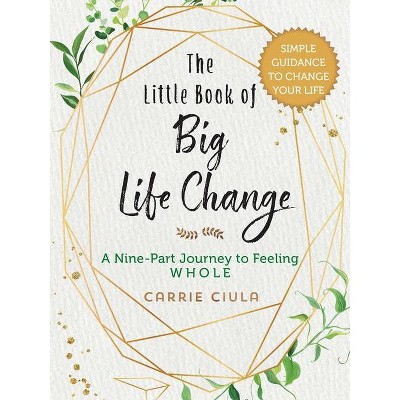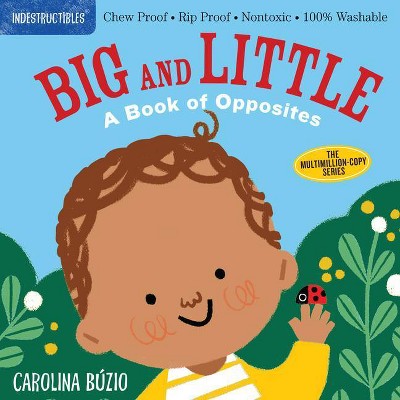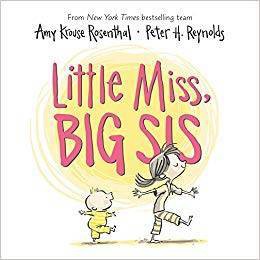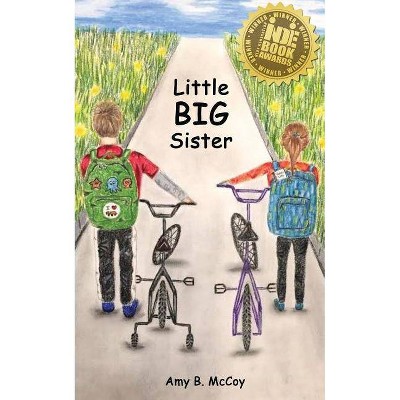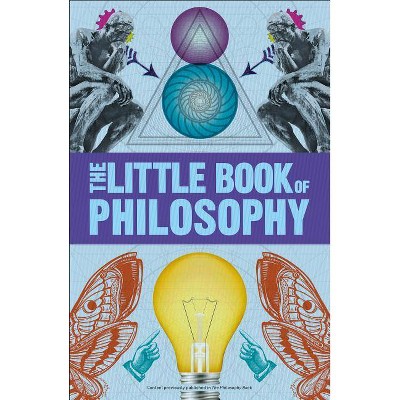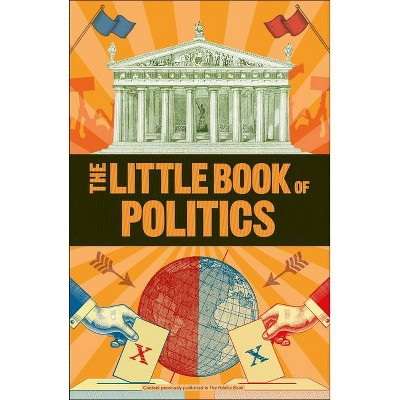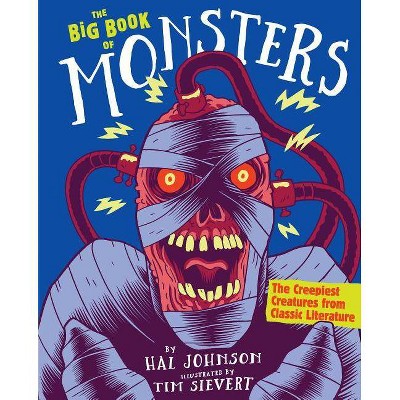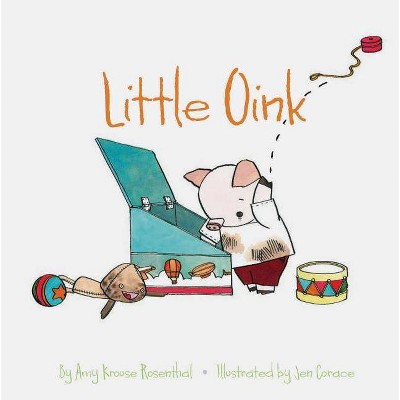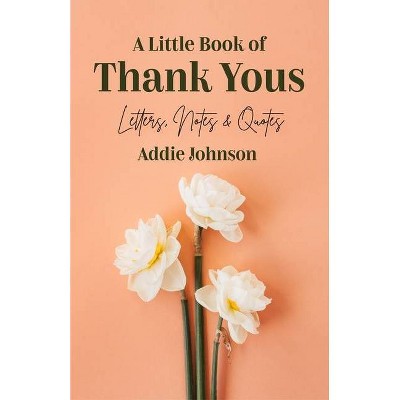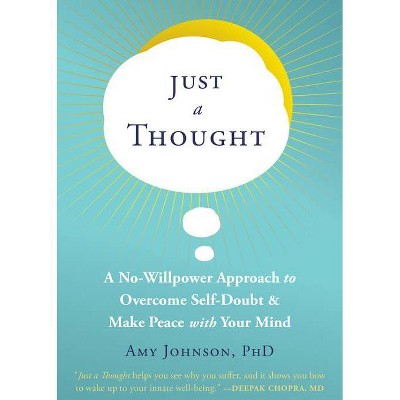The Little Book of Big Change - by Amy Johnson (Paperback)
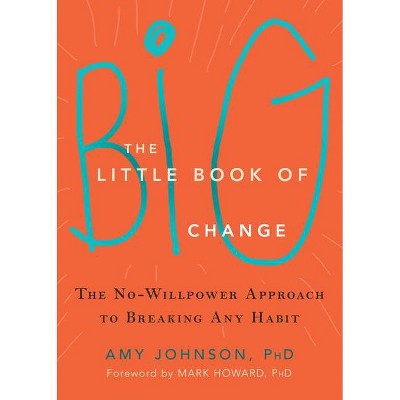
Similar Products
Products of same category from the store
AllProduct info
<p/><br></br><p><b> About the Book </b></p></br></br><em>It's not you--it's just the way you're wired. </em>That's the message psychologist Amy Johnson tells readers with bad habits in her unique guide, <em>The Little Book of Big Change</em>. Drawing on a powerful combination of neuroscience and spirituality, this book shows readers that they are not their habits. Rather, their habits and addictions are the result of simple brain wiring that is easily reversed. By learning to stop bad habits at the source, readers will take charge of their habits and addictions--once and for all.<p/><br></br><p><b> Book Synopsis </b></p></br></br><p><strong>Little changes can make a big, big difference! In <em>The Little Book of Big Change, </em>psychologist Amy Johnson shows you how to rewire your brain and overcome your bad habits--once and for all.</strong></p><p>No matter what your bad habit is, you have the power to change it. Drawing on a powerful combination of neuroscience and spirituality, this book will show you that you are not your habits. Rather, your habits and addictions are the result of simple brain wiring that is easily reversed. By learning to stop bad habits at the source, you will take charge of your habits and addictions for good.</p><p>Anything done repeatedly has the potential to form neural circuitry in the brain. In this light, habits and addictions are impersonal brain wiring problems that result from taking your habitual thinking as truth, and acting on that thinking in the form of doing your habit--over and over. This book offers a number of small changes you can make in your everyday life that will help you stop your bad habit in its tracks.</p><p>If you want to understand the science behind your habit, make the decision to end it, and commit to real, lasting change, this book will help you to finally take charge of your life--once and for all.</p><p/><br></br><p><b> Review Quotes </b></p></br></br><br>"<i>The Little Book of Big Change</i> is going to be a game changer for my counseling practice. I can't wait to share this book with my clients. Amy writes in such a simple, commonsense way about what's behind all habits...whether behaviors or thoughts that we would like to see change. It is a 'one-size-fits-all' kind of book. I see big changes ahead for all who read this book (including myself)!" <br><b>--</b><b>Karen Miller Williams</b>, Three Principles practitioner and mental well-being expert for over thirty-five years, emotional well-being educator, counselor, coach, and consultant <br><br><br>"Absolutely brilliant! <i>The Little Book of Big Change</i> is a game changer and is now officially one of my favorite self-help books. Authentic, gentle, and wise, Johnson masterfully leads us to life-changing insights--it's impossible to read this book and not immediately feel better in a long-lasting, 'I see, ' way. If you're stuck on some habit, read this book! You will likely get more than you can imagine." <br> --<b>Lisa Esile</b>, coauthor of <i>Whose Mind Is It Anyway?</i> <br><br><br>"Amy's potentially life-changing book gets right to the heart of who we really are: spiritual beings already and always healthy at our core. Amy's presentation of the spiritual understanding of the Three Principles provides genuine hope that everyone already has what it takes to be free of their addictions and habits!" <br> --<b>Dicken Bettinger, EdD</b>, retired licensed psychologist, and founder of Three Principles Mentoring <br><br><br>"Combining modern neuroscience with timeless spiritual principles, Amy Johnson delivers a new understanding of habits that is both fascinating and practical, liberating and simple. She explains why harmful habits aren't powerful, stable parts of who we are, but temporary logjams that cloud our natural state of well-being. Johnson helps her readers put aside faulty thoughts and urges, and points them toward the guidance of their innate wisdom. Anyone with a harmful behavioral or mental habit needs to read this book!" <br> --<b>Kathryn Hansen</b>, author of <i>Brain over Binge</i> <br><br><br>"I love this groundbreaking book! It frees people from the misguided idea that breaking self-destructive habits takes willpower, 'bootstrap pulling, ' tools, techniques, or thought reconditioning! It helps people see the innocence of their self-defeating habits so they can let go of guilt and blame. It helps people realize that they have all the mental health they need already inside of them. It shows people how to use the power of thought in their best interest. When people grasp these new insights, their habits naturally melt away." <br> --<b>Thomas M. Kelley, PhD</b>, associate professor at Wayne State University, and licensed psychologist <br><br><br>"I loved reading this book! <i>The Little Book of Big Change</i> will help the field of addictions and anyone suffering from a debilitating habit to find an easier, more enlightened path to full recovery, not only from habits and addictions, but a recovery of the innate health that is all of our birthright. I will encourage all the treatment centers I work with to use this as a course book for treatment. Johnson has moved the field forward to a new paradigm of treatment and recovery from addictions." <br> --<b>Joseph Bailey</b><b>, MA</b><b>, LP</b>, licensed psychologist, author of <i>The Serenity Principle</i>, and coauthor of<i> Slowing Down to the Speed of Life</i> <br><br><br>"Thanks to this powerful book, I've been Googling 'How to Build a Time Machine, ' because, my gosh, I would have <i>loved</i> this book back when my worst addiction (habit) was ruining me, but I find now it also works, as a system, to delete even the smallest of current annoying habits! Very highly recommended!" <br> --<b>Steve Chandler</b>, author of <i>Time Warrior</i> <br><br><br>"The clarity, wisdom, and practicality of this book are simply extraordinary and unmatched in the field of addiction, making it the absolute number one read for anyone struggling with or treating destructive habits. A powerful and radiant light that brings instant relief, hope, and peace of mind." <br><b>--Erika Bugbee, MA</b>, partner and cofounder of the Online Learning Division at Pransky & Associates<br><br>"This book completely overturns current ideas about addiction, the people who suffer with them, and the human ability for change. Amy not only provides hope and a simple solution for eliminating addictive behaviors, she offers a profoundly hopeful look at the ability we <i>all</i> have to feel more at peace in life." <br><b>--</b><b>Mara Gleason, MSW</b>, cofounder of One Thought, a leading global company that helps individuals and businesses unleash their greatest potential through clear thinking <br><br><br>"When Amy Johnson speaks of spirituality in this book, she is not playing lightly. Johnson speaks of a spirituality that both moves the universe and is also at the heart of ending addiction. This book reveals psychospiritual principles that are the essence of all spiritual teachings, and finally, tie spirit and science together. The information in this book can free you not just from addiction to behaviors, but from addiction to thoughts, the real culprit! A clear, profound, well-written, and revolutionary book." <br> --<b>Ami Chen Mills-Naim</b>, author of <i>The Spark Inside </i>and <i>State of Mind in the Classroom</i>, and founder of Ami Chen Coaching and Education<br><p/><br></br><p><b> About the Author </b></p></br></br><p><b>Amy Johnson, PhD</b>, is a master life coach who works with clients worldwide through coaching programs, workshops, and retreats. She is author of <i>Being Human</i>. Johnson has been a regularly featured expert on <i>The Steve Harvey Show</i> and www.oprah.com, as well as in <i>The</i><i>Wall Street Journal</i> and <i>Self </i>magazine. Since writing <i>The Little Book of Big Change</i>, she has devoted a large portion of her coaching practice to helping people end unwanted habits. Visit the author at www.dramyjohnson.com. <p/> Foreword writer <b>Mark Howard, PhD</b>, is founder of the Three Principles Institute in Burlingame, CA. He is a licensed psychologist, and recognized as one of the pioneers who first brought the Three Principles into the field of psychology. Since 1982, Howard has been teaching private clients, families, business professionals, and mental health practitioners about the principles. He continues to mentor and train health professionals in the Three Principles, and has dedicated his life to bringing peace, well-being, and happiness to humankind. In 2008, he received the Outstanding Career Service award from the Santa Clara County Psychological Association for bringing the principles to Santa Clara County in California.</p> <br>
Price History
Price Archive shows prices from various stores, lets you see history and find the cheapest. There is no actual sale on the website. For all support, inquiry and suggestion messages communication@pricearchive.us
